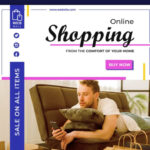Emphasizing the Importance of Sustainability in Wholesale Sock Business
In the dynamic landscape of wholesale sock trade, sustainability has emerged as a defining factor, shaping the values and practices of trendsetting retailers.
- Environmental Responsibility: Trendsetting retailers recognize the ecological footprint of the fashion industry and actively seek ways to minimize it. From sourcing eco-friendly materials to adopting sustainable production processes, the emphasis is on reducing environmental impact. This commitment resonates with environmentally conscious consumers who prioritize products aligned with their values.
- Ethical Sourcing Practices: Sustainability extends beyond environmental considerations to encompass ethical sourcing practices. Trendsetting retailers engage in fair trade partnerships, ensuring that the entire supply chain, from material extraction to manufacturing, upholds ethical standards. This dedication to ethical sourcing fosters transparency and builds trust with consumers increasingly concerned about the origin of their products.
- Circular Economy Initiatives: Pioneering retailers embrace circular economy initiatives, promoting recycling, upcycling, and waste reduction. By designing socks with recyclable materials or offering recycling programs, these retailers contribute to a more circular and less wasteful fashion ecosystem. This resonates with consumers who value products designed with the end of their lifecycle in mind.
- Consumer Education: Trendsetting retailers understand the power of consumer education in promoting sustainability. Through informative content and transparency about sustainable practices, retailers empower consumers to make informed choices. This educational aspect not only enhances the perceived value of sustainable socks but also cultivates a sense of responsibility among consumers.
- Longevity and Timeless Design: Sustainable sock retailers prioritize longevity and timeless design. By creating socks with enduring appeal and high-quality materials, these retailers encourage consumers to invest in pieces that withstand trends and seasons. This shift towards durable, timeless products contributes to a more sustainable fashion culture, reducing the prevalence of fast fashion.
In essence, the emphasis on sustainability in wholesale sock businesses reflects a broader shift towards conscientious and ethical practices. Trendsetting retailers recognize that sustainability is not just a trend but a fundamental value that resonates with today’s socially and environmentally conscious consumers. By weaving sustainability into the fabric of their operations, these retailers not only contribute to a greener future but also position themselves as leaders in a fashion industry evolving towards a more responsible and sustainable paradigm.
Exploring Eco-Friendly Fibers and Materials: The Impact of Sustainable Choices on Consumer Preferences
In the realm of wholesale socks, the exploration of eco-friendly fibers and materials not only aligns with environmental stewardship but significantly influences consumer preferences and purchasing behaviors.
- Embracing Eco-Friendly Fibers:
Trendsetting retailers are at the forefront of adopting eco-friendly fibers, such as organic cotton, bamboo, and recycled polyester. These choices go beyond aesthetics, resonating with environmentally conscious consumers who prioritize products that minimize harm to the planet. The commitment to eco-friendly fibers showcases a retailer’s dedication to sustainability. - Impact on Manufacturing Processes:
The shift towards eco-friendly materials influences the entire manufacturing process. From reduced water usage to energy-efficient production methods, trendsetting retailers ensure that the sustainability ethos extends beyond material selection. This comprehensive approach appeals to consumers who seek not only sustainable end products but also environmentally responsible production practices. - Quality and Comfort of Sustainable Choices:
Contrary to the perception that sustainability may compromise quality, trendsetting retailers emphasize the superior quality and comfort of eco-friendly sock options. Whether it’s the breathability of bamboo fibers or the softness of organic cotton, sustainable choices are positioned as not just ethical but also as offering a premium and comfortable experience for consumers. - Alignment with Consumer Values:
Sustainable choices in sock materials resonate with the values of modern consumers. As individuals become more eco-conscious, their purchasing decisions are increasingly driven by a desire to align with brands that share their environmental values. Trendsetting retailers recognize this shift and position their eco-friendly sock collections as a reflection of shared values with their environmentally conscious consumer base. - Educating Consumers on Sustainable Benefits:
Trendsetting retailers understand the importance of consumer education. By providing information on the environmental benefits of eco-friendly materials, retailers empower consumers to make informed choices. This educational aspect not only builds trust but also elevates the perceived value of sustainable sock options in the eyes of consumers.
In essence, the exploration of eco-friendly fibers and materials is a strategic move by trendsetting retailers, shaping not only the environmental footprint of their products but also influencing consumer preferences. By offering sustainable choices that align with consumer values, these retailers position themselves as leaders in a market where ethical and eco-conscious considerations increasingly guide purchasing decisions.

Assessing Suppliers Committed to Sustainability and Collaborating with Local Artisans for Unique Eco-Friendly Designs
In the realm of wholesale socks, the commitment to sustainability extends beyond materials to strategic partnerships and collaborations that redefine the industry’s landscape.
- Supplier Sustainability Evaluation:
Trendsetting retailers prioritize suppliers who share a commitment to sustainability. Beyond the quality of materials, retailers assess suppliers based on eco-friendly practices, ethical labor standards, and a dedication to minimizing environmental impact. This meticulous evaluation ensures that the entire supply chain aligns with the retailer’s sustainability goals. - Local Artisan Collaborations:
A hallmark of trendsetting retailers is their collaboration with local artisans. By engaging with skilled craftsmen within their communities, retailers not only support local economies but also foster unique, handcrafted designs. This approach not only emphasizes the human touch but also contributes to the preservation of traditional craftsmanship. - Crafting Unique Eco-Friendly Designs:
The collaboration with local artisans goes beyond aesthetics to integrate eco-friendly design principles. Whether it’s utilizing upcycled materials, implementing low-impact dyeing techniques, or incorporating innovative, sustainable processes, retailers and artisans work in tandem to create sock collections that stand out for their environmental consciousness and unique design elements. - Transparency in the Supply Chain:
Trendsetting retailers prioritize transparency in their supply chains. Communicating the stories behind each pair of socks, including the artisans involved and the sustainable practices employed, enhances the perceived value of the product. This transparency not only builds consumer trust but also educates the audience on the positive impact of supporting sustainable and locally crafted goods. - Cultural and Environmental Sensitivity:
Collaborating with local artisans requires a keen understanding of cultural and environmental sensitivities. Trendsetting retailers work closely with artisans to ensure that designs respect cultural nuances and that production methods are in harmony with the local environment. This approach fosters a mutually beneficial partnership and resonates with consumers who appreciate culturally sensitive and eco-conscious products.
In essence, the evaluation of suppliers committed to sustainability and collaborations with local artisans are integral components of a trendsetting retailer’s strategy. By prioritizing these partnerships, retailers not only contribute to the global shift towards sustainability but also deliver unique, handcrafted designs that capture the essence of ethical fashion. This holistic approach sets trendsetting retailers apart, positioning them as leaders in the evolving landscape of eco-friendly wholesale socks.
Conveying the Value of Sustainable Choices: Striking a Balance Between Affordability and Sustainability
In the dynamic world of wholesale socks, trendsetting retailers navigate the delicate balance between affordability and sustainability, ensuring that their commitment to eco-conscious choices is accessible to a broader consumer base.
- Transparent Communication of Values:
Trendsetting retailers prioritize transparent communication regarding the values embedded in their sustainable choices. By clearly articulating the environmental benefits, ethical considerations, and positive impact associated with sustainable sock collections, retailers empower consumers to make informed decisions aligned with their own values. - Affordability Without Compromise:
Recognizing the importance of affordability, trendsetting retailers strive to offer sustainable sock options without compromising on price accessibility. This commitment challenges the notion that eco-friendly choices come with a premium price tag, making sustainability an inclusive concept that resonates with a diverse range of consumers. - Educating on Long-Term Benefits:
To address the affordability-sustainability balance, trendsetting retailers focus on educating consumers about the long-term benefits of sustainable choices. Emphasizing the durability, quality, and timeless design of eco-friendly socks underscores their value proposition, showcasing that investing in sustainable options can be economically prudent in the long run. - Innovative Pricing Models:
Trendsetting retailers explore innovative pricing models to make sustainable choices more accessible. This may involve loyalty programs, bulk discounts, or strategic partnerships to ensure that affordability is not a barrier to embracing eco-conscious sock collections. These creative pricing strategies contribute to the democratization of sustainable fashion. - Consumer Empowerment:
The narrative of balancing affordability and sustainability revolves around empowering consumers. Trendsetting retailers encourage consumers to view their purchases as intentional investments in a sustainable future. By fostering a sense of empowerment, retailers inspire consumers to prioritize values without feeling constrained by financial considerations.
In summary, conveying the value of sustainable choices while striking a balance between affordability and sustainability is a central tenet of trendsetting retailers. By transparently communicating values, ensuring affordability without compromise, educating on long-term benefits, exploring innovative pricing models, and empowering consumers, these retailers redefine the narrative around sustainable wholesale socks. In doing so, they contribute to a paradigm shift where eco-conscious choices become not just a statement but an accessible and integral part of everyday fashion.

Communicating Corporate Commitment to Sustainability: Strategies Using Eco-Certifications
In the realm of wholesale socks, trendsetting retailers go beyond mere claims of sustainability by adopting strategic communication approaches, notably leveraging recognized eco-certifications to solidify their commitment.
- Eco-Certifications as Credible Endorsements:
Trendsetting retailers understand the power of third-party eco-certifications as credible endorsements of their sustainability practices. Whether it’s certifications for organic materials, fair trade, or environmentally friendly manufacturing processes, these seals of approval serve as tangible proof of the retailer’s commitment to eco-conscious business practices. - Transparent Integration of Certifications:
To effectively communicate sustainability commitments, trendsetting retailers transparently integrate eco-certifications into their branding and marketing materials. Whether prominently displayed on product packaging, online platforms, or in-store displays, the presence of recognized certifications creates an immediate visual connection between the retailer’s commitment and verified environmental standards. - Educating Consumers on Certification Significance:
Trendsetting retailers take an educational approach, enlightening consumers on the significance of various eco-certifications. By providing accessible information about what each certification represents in terms of environmental impact, ethical sourcing, and sustainable production, retailers empower consumers to make informed choices that align with their values. - Consistent and Authentic Messaging:
Consistency in messaging is key for trendsetting retailers. They ensure that the communication of eco-certifications aligns with broader corporate messaging on sustainability. This authenticity reinforces the credibility of the certifications, fostering trust among consumers who seek genuine and verifiable commitments to environmentally responsible practices. - Interactive and Engaging Communication:
Leveraging various communication channels, trendsetting retailers engage consumers interactively. Whether through social media campaigns, blogs, or interactive website features, retailers use these platforms to share stories behind certifications, showcase the positive impact of sustainable practices, and encourage a sense of shared responsibility in building a greener future.
In essence, trendsetting retailers employ a multi-faceted approach to communicate their commitment to sustainability through eco-certifications. By integrating these endorsements transparently, educating consumers on their significance, maintaining consistent and authentic messaging, and engaging consumers through interactive communication, retailers not only convey their dedication to eco-conscious practices but also inspire consumers to join the journey towards a more sustainable future.
Building a Reputation as a Leading Sustainable Wholesale Socks Retailer
In the competitive landscape of wholesale socks, trendsetting retailers recognize the importance of cultivating a reputation as a leader in sustainability. Here are key strategies employed by these retailers:
- Holistic Sustainability Practices:
Trendsetting retailers embrace a holistic approach to sustainability, ensuring that every aspect of their operations aligns with eco-friendly principles. From sourcing materials and manufacturing processes to packaging and distribution, a comprehensive commitment to sustainability permeates every facet of the business. - Transparent Communication:
Building a reputation as a leader in sustainability requires transparent communication. Trendsetting retailers openly share information about their sustainable practices, detailing the steps taken to reduce environmental impact, support ethical labor, and contribute positively to local communities. This transparency builds trust with consumers who seek authenticity in sustainable commitments. - Innovation in Sustainable Designs:
Setting themselves apart, trendsetting retailers innovate in sustainable designs. This involves exploring cutting-edge materials, implementing zero-waste production techniques, and consistently pushing the boundaries of eco-conscious fashion. By staying ahead in sustainable design, retailers captivate a consumer base that values both style and environmental responsibility. - Active Participation in Industry Initiatives:
To solidify their leadership position, trendsetting retailers actively engage in industry-wide sustainability initiatives. Whether joining collaborations to address environmental challenges or participating in forums to share best practices, these retailers demonstrate a commitment to collective efforts that drive positive change in the wholesale sock industry. - Community Engagement and Partnerships:
Establishing a reputation as a sustainable leader goes beyond business transactions. Trendsetting retailers actively engage with communities, forging partnerships that contribute to social and environmental well-being. Whether supporting local initiatives, collaborating with NGOs, or participating in sustainability-driven events, retailers showcase their dedication to making a meaningful impact beyond their products.
In summary, trendsetting retailers build a reputation as leaders in sustainable wholesale socks by adopting a holistic approach, maintaining transparent communication, innovating in sustainable designs, actively participating in industry initiatives, and engaging with communities. This comprehensive strategy positions these retailers not only as sellers of eco-friendly products but as advocates for positive change in the wholesale sock industry and champions of a sustainable future.







